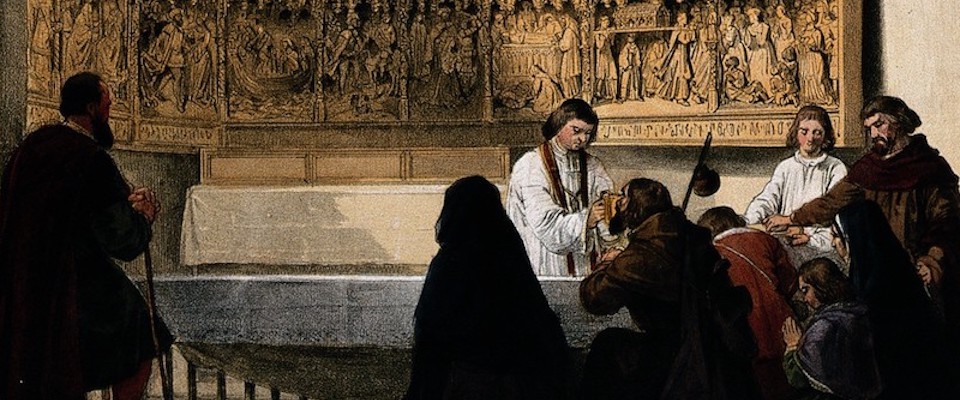Patriotism and Faith, by G.K. Chesterton

Saint of the Day for August 25: St. Louis of France
August 25, 2023
Msgr. Richard C. Antall: Cardinal Ratzinger on Why Pro-lifers Are Losing Referenda Like Ohio’s Issue One
August 25, 2023
By G.K. Chesterton, The Catholic Thing, Aug. 25, 2023
From The Catholic Church and Conversion (1927)
The Catholic Church loves nations as she loves men; because they are her children. But they certainly are her children, in the sense that they are secondary to her in time and process of production. This is, as it happens, a very good example of a fallacy that often confuses discussion about the convert. The same people who call the convert a pervert, and especially a traitor to patriotism, very often use the other catchword to the effect that he is forced to believe this or that. But it is not really a question of what a man is made to believe but of what he must believe; what he cannot help believing. He cannot disbelieve in an elephant when he has seen one; and he cannot treat the Church as a child when he has discovered that she is his mother. She is not only his mother but his country’s mother in being much older and more aboriginal than his country. She is such a mother not in sentimental feeling but in historical fact. He cannot think one thing when he knows the contrary thing.
He cannot think that Christianity was invented by Penda of Mercia, who sent missionaries to the heathen Augustine and the rude and barbarous Gregory. He cannot think that the Church first rose in the middle of the British Empire, and not of the Roman Empire. He cannot think that England existed, with cricket and fox-hunting and the Jacobean translation all complete, when Rome was founded or when Christ was born.
It is no good talking about his being “free” to believe these things. He is exactly as free to believe them as he is to believe that a horse has feathers or that the sun is pea green. He cannot believe them when once he fully realises them; and among such things is the notion that the national claim upon a good patriot is in its nature more absolute, ancient and authoritative than the claim of the whole religious culture which first mapped out its territories and anointed its kings.
That religious culture does indeed encourage him to fight to the last for his country, as for his family. But that is because the religious culture is generous and imaginative and humane and knows that men must have intimate and individual ties. But those secondary loyalties are secondary in time and logic to the law of universal morality which justifies them. And if the patriot is such a fool as to force the issue against that universal tradition from which his own patriotism descends, if he presses his claim to priority over the primitive law of the whole earth–then he will have brought it on himself if he is answered with the pulverising plainness of the Book of Job. As God said to the man, “Where were you when the foundations of the world were laid?” We might well say to the nation, “Where were you when the foundations of the Church were laid?” And the nation will not know in the least what to answer – if it should wish to answer – but will be forced to put its hand upon its mouth, if only like one who yawns and falls asleep. – from The Catholic Church and Conversion (1927)




